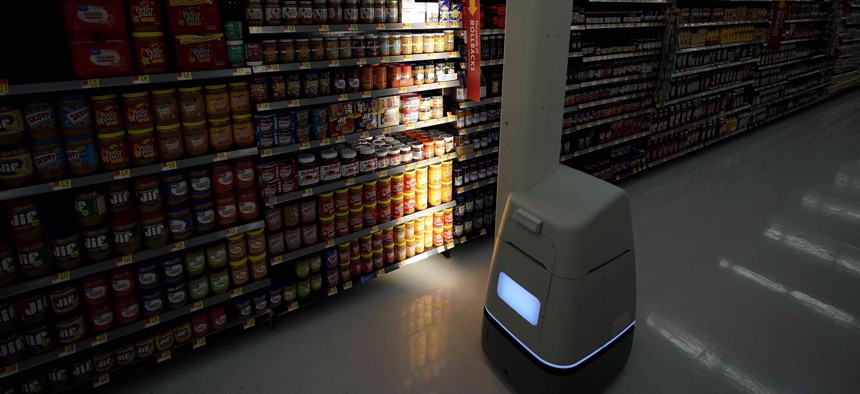Connecting state and local government leaders
New research offers some insight into where they could be.
Parts of the Midwest and South, and smaller and more rural communities, have workforces that will be especially susceptible to disruption by automation in future years, according to a new report.
Brookings Metropolitan Policy Program researchers emphasize that automation and artificial intelligence could help boost productivity and economic growth. But they also caution that about a quarter of U.S jobs will face “high exposure” to automation in the coming decades.
“The next phase of automation, increasingly involving AI, seems like it should be manageable in the aggregate labor market, though there are many sources of uncertainty,” Mark Muro, a senior fellow at Brookings and lead author of the report, said in a statement.
“The potential effects will vary significantly across occupations, regions, and demographic groups,” he added.
Muro and his co-authors acknowledge that there’s been a “correction of sorts” in the wake of earlier fears about the potential for automation and artificial intelligence to destroy jobs.
“The discourse appears to be arriving at a more complicated, mixed understanding that suggests that automation will bring neither apocalypse nor utopia, but instead both benefits and stresses alike,” they add in the report.
Jobs most at risk, the report says, are the ones that involve “predictable” and “routine” tasks, in fields ranging from office administration, to manufacturing, to food preparation.
The report features a metric called “automation potential,” which considers the extent to which tasks within a certain occupation could be done by machines instead of people.
By combining that measure with the composition of jobs in different states and local regions, the researchers came up with an “employment-weighted automation potential” for each place.
The results differ less radically between states than at the local level—not surprising because there’s apt to be a wider mix of jobs and industries across an entire state than a smaller region.
States with higher levels of automation potential include places like Kentucky, Arkansas, Alabama and Mississippi, according to the report.
Less than one-quarter of adults in these states have attained at least a bachelor’s degree and about 40 percent of employment in the states is in fields where automation is most likely, industries such as manufacturing, retail, agriculture and mining, the report also says.
The researchers note that 19 states the Walton Family Foundation dubs the “American Heartland” have an average employment-weighted automation potential of 47 percent of current occupational tasks, compared with 45 percent in the rest of the U.S.
By comparison, in states like Connecticut, Massachusetts and Maryland, where over 38 percent of residents have at least a four-year degree, the automation exposure is 44 percent or less.
Zooming in to the local level, the researchers find that counties in places like northern Ohio, Indiana, Wisconsin and parts of the South are vulnerable to workforce disruptions from automation. The same is true for rural counties in the West with large mines, the report adds.
In contrast, places in the corridor between Boston and Washington, D.C., and on the West Coast, are less exposed.
“The automation of the nation’s manufacturing core—running from the Great Lakes south to the Gulf of Mexico—is in no way completed,” the researchers write.
Their 108-page report includes a number of other findings. For instance, how automation could affect different demographic groups. It suggests men, younger workers and racial and ethnic minorities are more likely than others to hold jobs that could be upended.
A full copy of the report, which was published last week, can be found here.
Bill Lucia is a Senior Reporter with Route Fifty and is based in Washington, D.C.

NEXT STORY: How to Grow the Next Generation of Cybersecurity Talent




